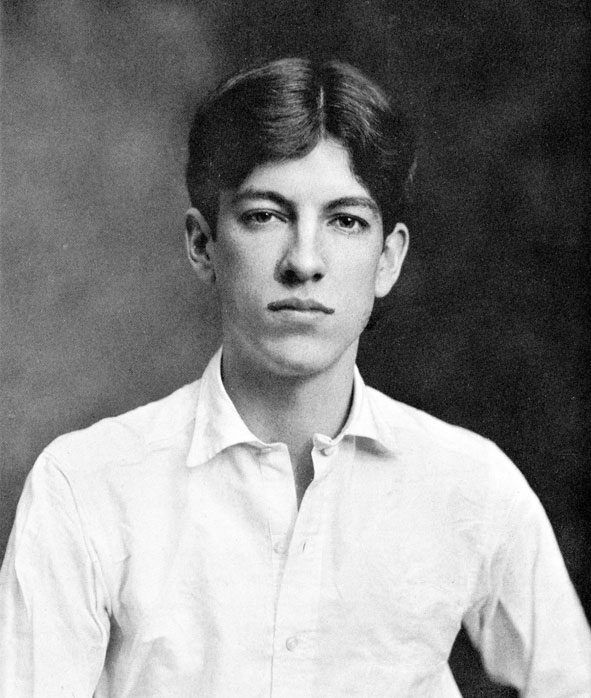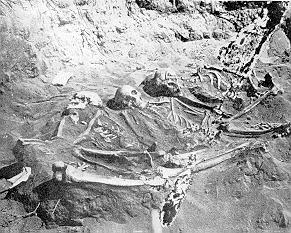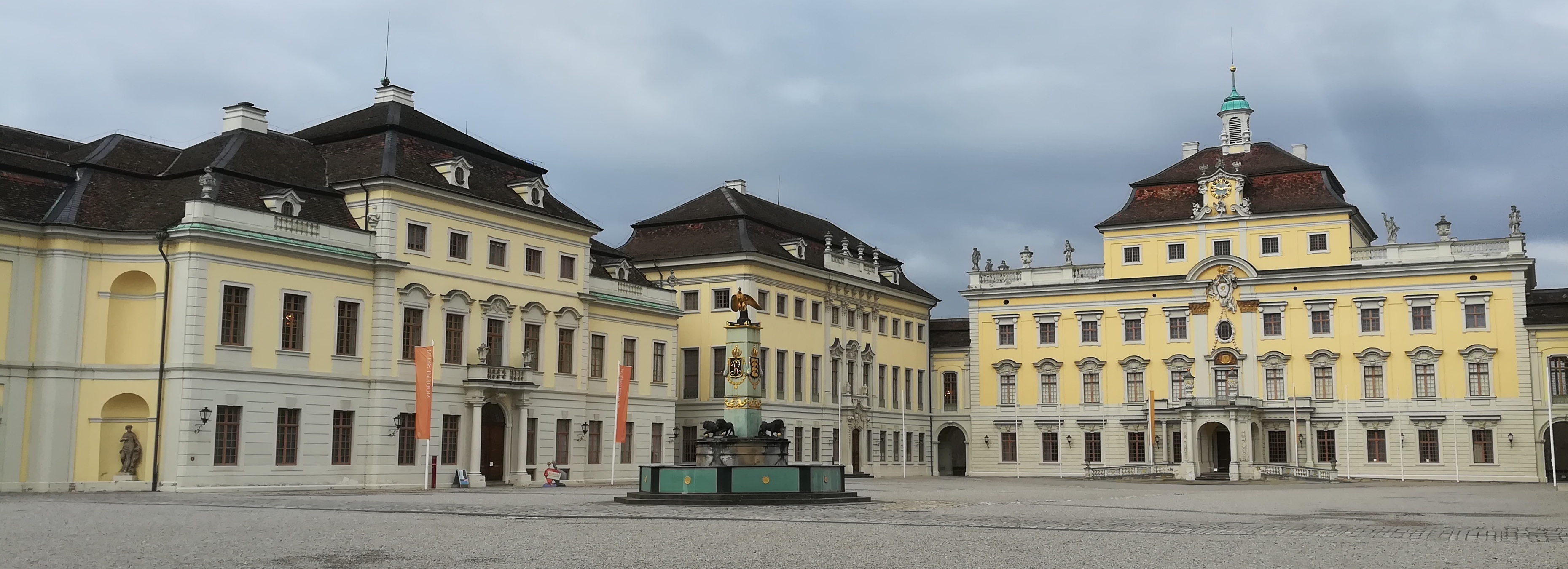|
Alan Seeger
Alan Seeger (22 June 1888 – 4 July 1916) was an American war poet who fought and died in World War I during the Battle of the Somme, serving in the French Foreign Legion. Seeger was the brother of Charles Seeger, a noted American pacifist and musicologist and the uncle of folk musicians, Pete Seeger, Peggy Seeger, and Mike Seeger. He is best known for the poem " I Have a Rendezvous with Death", a favorite of President John F. Kennedy. A statue representing him is on the monument in the Place des États-Unis, Paris, honoring fallen Americans who volunteered for France during the war. Seeger is sometimes called the "American Rupert Brooke". Early life Seeger was born on June 22, 1888, in New York City. According to Alan's nephew, folk singer Pete Seeger, the Seeger family was "enormously Christian, in the Puritan, Calvinist New England tradition." In practice, though, Alan's immediate family lived within the precepts of the evolution of Calvinism into Unitarianism. His paren ... [...More Info...] [...Related Items...] OR: [Wikipedia] [Google] [Baidu] |
Alan Seeger
Alan Seeger (22 June 1888 – 4 July 1916) was an American war poet who fought and died in World War I during the Battle of the Somme, serving in the French Foreign Legion. Seeger was the brother of Charles Seeger, a noted American pacifist and musicologist and the uncle of folk musicians, Pete Seeger, Peggy Seeger, and Mike Seeger. He is best known for the poem " I Have a Rendezvous with Death", a favorite of President John F. Kennedy. A statue representing him is on the monument in the Place des États-Unis, Paris, honoring fallen Americans who volunteered for France during the war. Seeger is sometimes called the "American Rupert Brooke". Early life Seeger was born on June 22, 1888, in New York City. According to Alan's nephew, folk singer Pete Seeger, the Seeger family was "enormously Christian, in the Puritan, Calvinist New England tradition." In practice, though, Alan's immediate family lived within the precepts of the evolution of Calvinism into Unitarianism. His paren ... [...More Info...] [...Related Items...] OR: [Wikipedia] [Google] [Baidu] |
Place Des États-Unis
The Place des États-Unis (; "United States Square") is a public space in the 16th arrondissement of Paris, France, about 500 m south of the Place de l'Étoile and the Arc de Triomphe. It consists of a plaza, approximately long and wide, tree-lined, well-landscaped, and circumscribed by streets, forming a pleasant and shady vest-pocket park. The park is officially named Square Thomas Jefferson, but buildings facing it (on three sides) have Place-des-États-Unis addresses. The eastern end of the square, however, is capped by the Avenue d'Iéna and a confluence of streets known as the Place de l' Amiral de Grasse. These streets, all of which lead to the eastern end of Place des États-Unis, are the Rue Freycinet, Rue de Lübeck, Rue de Bassano, and the Rue Georges Bizet. Other streets entering the Place des États-Unis include: the Rue de l' Amiral d'Estaing, which enters from the south; the Rue Galilée, which transits the western end of Square Thomas Jefferson; and the ... [...More Info...] [...Related Items...] OR: [Wikipedia] [Google] [Baidu] |
Walter Lippmann
Walter Lippmann (September 23, 1889 – December 14, 1974) was an American writer, reporter and political commentator. With a career spanning 60 years, he is famous for being among the first to introduce the concept of Cold War, coining the term "stereotype" in the modern psychological meaning, as well as critiquing media and democracy in his newspaper column and several books, most notably his 1922 book '' Public Opinion''. Lippmann also played a notable role in Woodrow Wilson's post-World War I board of inquiry, as its research director. His views regarding the role of journalism in a democracy were contrasted with the contemporaneous writings of John Dewey in what has been retrospectively named the Lippmann-Dewey debate. Lippmann won two Pulitzer Prizes, one for his syndicated newspaper column "Today and Tomorrow" and one for his 1961 interview of Nikita Khrushchev. He has also been highly praised with titles ranging anywhere from "most influential" journalist of the 20t ... [...More Info...] [...Related Items...] OR: [Wikipedia] [Google] [Baidu] |
Aestheticism
Aestheticism (also the Aesthetic movement) was an art movement in the late 19th century which privileged the aesthetic value of literature, music and the arts over their socio-political functions. According to Aestheticism, art should be produced to be beautiful, rather than to serve a moral, allegorical, or other didactic purpose, a sentiment exemplified by the slogan " art for art's sake." Aestheticism originated in 1860s England with a radical group of artists and designers, including William Morris and Dante Gabriel Rossetti. It flourished in the 1870s and 1880s, gaining prominence and the support of notable writers such as Walter Pater and Oscar Wilde. Aestheticism challenged the values of mainstream Victorian culture, as many Victorians believed that literature and art fulfilled important ethical roles. Writing in ''The Guardian'', Fiona McCarthy states that "the aesthetic movement stood in stark and sometimes shocking contrast to the crass materialism of Britain in ... [...More Info...] [...Related Items...] OR: [Wikipedia] [Google] [Baidu] |
The Harvard Monthly
''The Harvard Monthly'' was a literary magazine of Harvard University in Cambridge, Massachusetts, beginning October 1885 until suspending publication following the Spring 1917 issue. Formed in the latter months of 1885 by Harvard seniors William Woodward Baldwin, Thomas Parker Sanborn, Alanson B. Houghton, George Santayana, William Morton Fullerton, and George Rice Carpenter, the magazine proposed to afford "...a medium for the strongest and soberest undergraduate thought of the college...". These six men comprised the ''Monthly's'' initial staff, with Houghton as editor, Baldwin as business manager and the others acting as editors. The initial October 1885 issue includes works by Sanborn, Santayana, Houghton, Fullerton the magazine's faculty adviser, Barrett Wendell, among others. Some of the essays in this issue which may have been felt controversial have no stated author. In regard to this issue, ''The Harvard Crimson'' observed that "The unique form and general typogra ... [...More Info...] [...Related Items...] OR: [Wikipedia] [Google] [Baidu] |
Hackley School
Hackley School is a private college preparatory school located in Tarrytown, New York, and is a member of the Ivy Preparatory School League. Founded in 1899 by a wealthy philanthropist, Frances Hackley, Hackley was intended to be a Unitarian alternative to the mostly Episcopal boarding schools throughout the Northeast. Since its founding, Hackley has dropped its Unitarian affiliations and changed from all-boys to coeducational. Hackley is divided into three schools on the same campus: the Lower School, the Middle School, and the Upper School. Hackley school is also a member of global education association, Round Square. In September 2015, Hackley announced the appointment of Michael C. Wirtz as Hackley's 12th head of school. Wirtz began his tenure July 1, 2016, succeeding Walter C. Johnson, who served as headmaster from 1995 to 2016. History Founding During the 1890s, the American Unitarian leadership in Boston became increasingly concerned about the lack of Unitarian pre ... [...More Info...] [...Related Items...] OR: [Wikipedia] [Google] [Baidu] |
Staten Island
Staten Island ( ) is a Boroughs of New York City, borough of New York City, coextensive with Richmond County, in the U.S. state of New York (state), New York. Located in the city's southwest portion, the borough is separated from New Jersey by the Arthur Kill and the Kill Van Kull and from the rest of New York by New York Bay. With a population of 495,747 in the 2020 United States Census, 2020 Census, Staten Island is the least populated borough but the third largest in land area at . A home to the Lenape indigenous people, the island was settled by Dutch colonists in the 17th century. It was one of the 12 original counties of New York state. Staten Island was City of Greater New York, consolidated with New York City in 1898. It was formally known as the Borough of Richmond until 1975, when its name was changed to Borough of Staten Island. Staten Island has sometimes been called "the forgotten borough" by inhabitants who feel neglected by the Government of New York City, city ... [...More Info...] [...Related Items...] OR: [Wikipedia] [Google] [Baidu] |
Charles Louis Seeger, Sr
Charles is a masculine given name predominantly found in English and French speaking countries. It is from the French form ''Charles'' of the Proto-Germanic name (in runic alphabet) or ''*karilaz'' (in Latin alphabet), whose meaning was "free man". The Old English descendant of this word was '' Ċearl'' or ''Ċeorl'', as the name of King Cearl of Mercia, that disappeared after the Norman conquest of England. The name was notably borne by Charlemagne (Charles the Great), and was at the time Latinized as ''Karolus'' (as in ''Vita Karoli Magni''), later also as '' Carolus''. Some Germanic languages, for example Dutch and German, have retained the word in two separate senses. In the particular case of Dutch, ''Karel'' refers to the given name, whereas the noun ''kerel'' means "a bloke, fellow, man". Etymology The name's etymology is a Common Germanic noun ''*karilaz'' meaning "free man", which survives in English as churl (< Old English ''ċeorl''), which developed its de ... [...More Info...] [...Related Items...] OR: [Wikipedia] [Google] [Baidu] |
American Revolution
The American Revolution was an ideological and political revolution that occurred in British America between 1765 and 1791. The Americans in the Thirteen Colonies formed independent states that defeated the British in the American Revolutionary War (1775–1783), gaining independence from the The Crown, British Crown and establishing the United States of America as the first nation-state founded on Age of Enlightenment, Enlightenment principles of liberal democracy. Colonial history of the United States, American colonists objected to being taxed by the Parliament of Great Britain, a body in which they had no taxation without representation, no direct representation. Before the 1760s, Britain's American colonies had enjoyed a high level of autonomy in their internal affairs, which were locally governed by colonial legislatures. During the 1760s, however, the British Parliament passed a number of acts that were intended to bring the American colonies under more direct rule f ... [...More Info...] [...Related Items...] OR: [Wikipedia] [Google] [Baidu] |
Duchy Of Württemberg
The Duchy of Württemberg (german: Herzogtum Württemberg) was a duchy located in the south-western part of the Holy Roman Empire. It was a member of the Holy Roman Empire from 1495 to 1806. The dukedom's long survival for over three centuries was mainly due to its size, being larger than its immediate neighbors. During the Protestant Reformation, Württemberg faced great pressure from the Holy Roman Empire to remain a member. Württemberg resisted repeated French invasions in the 17th and 18th centuries. Württemberg was directly in the path of French and Austrian armies who were engaged in the long rivalry between the House of Bourbon and the House of Habsburg. In 1803, Napoleon raised the duchy to be the Electorate of Württemberg of the Holy Roman Empire. On 1 January 1806, the last Elector assumed the title of King of Württemberg. Later that year, on 6 August 1806, the last Emperor, Francis II, abolished (de facto) the Holy Roman Empire. Geography Much of the territor ... [...More Info...] [...Related Items...] OR: [Wikipedia] [Google] [Baidu] |
David King Dunaway
David King Dunaway is an American historian. He is a professor of English at the University of New Mexico in Albuquerque, New Mexico; he was previously on the faculty of San Francisco State University in San Francisco. He was also the first consultant to the UNESCO Program on Intangible Cultural Heritage. Books David Dunaway's first book, ''How Can I Keep From Singing'', the first biography of folk musician and social activist Pete Seeger, was based on his doctoral dissertation at the University of California, Berkeley, and first released in 1981. Since then, it has been translated into Japanese and Spanish and been through six printings. Working with Seeger, Dunaway completed a revised, updated version of the biography in 2008 from Villard Books/Random House. In addition, Dunaway is also the editor of ''Oral History: An Interdisciplinary Anthology'' (with Willa Baum; second edition, Rowman & Littlefield, 1996), and the author of ''Huxley in Hollywood'' (Harper Collins, 19 ... [...More Info...] [...Related Items...] OR: [Wikipedia] [Google] [Baidu] |
Calvinist
Calvinism (also called the Reformed Tradition, Reformed Protestantism, Reformed Christianity, or simply Reformed) is a major branch of Protestantism that follows the theological tradition and forms of Christian practice set down by John Calvin and other Reformation-era theologians. It emphasizes the sovereignty of God and the authority of the Bible. Calvinists broke from the Roman Catholic Church in the 16th century. Calvinists differ from Lutherans (another major branch of the Reformation) on the spiritual real presence of Christ in the Lord's Supper, theories of worship, the purpose and meaning of baptism, and the use of God's law for believers, among other points. The label ''Calvinism'' can be misleading, because the religious tradition it denotes has always been diverse, with a wide range of influences rather than a single founder; however, almost all of them drew heavily from the writings of Augustine of Hippo twelve hundred years prior to the Reformation. The ... [...More Info...] [...Related Items...] OR: [Wikipedia] [Google] [Baidu] |







